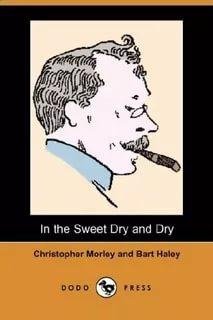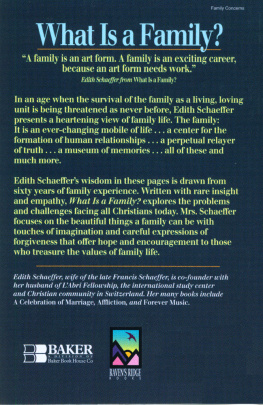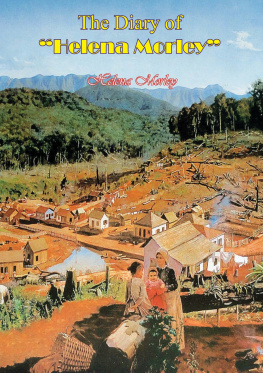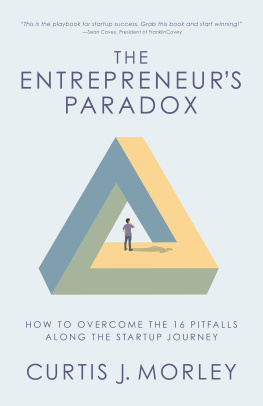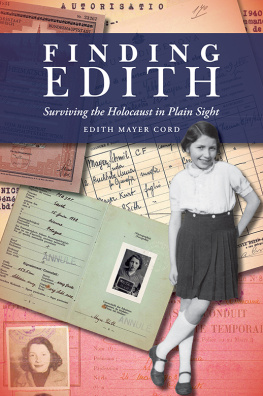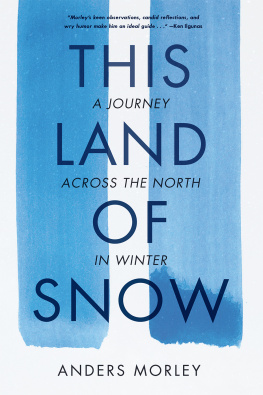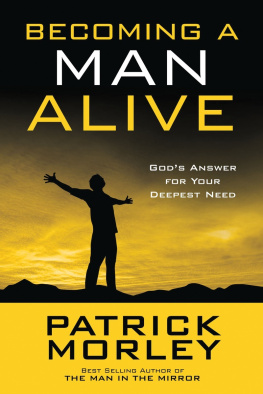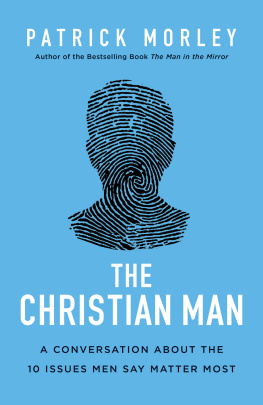Before and After
Born in Bayswater in 1875, Edith Morley did hate being a girl, though she found the middle-class conventions of the day restrictive rather than repressive and benefited from a good education, thanks to her surgeon-dentist father and well-read mother. She obtained an equivalent degree from Oxford University (the only type available to the few female students at the time) and was appointed Professor of English Language at University College, Reading, in 1908, becoming the first female professor in the United Kingdom. She is best known as the primary twentieth-century editor of Henry Crabb Robinsons writings (the author of a comprehensive biography) and for her Women Workers in Seven Professions: A Survey of their Economic Conditions and Prospects (1914), published while she was a member of the Fabian Executive Committee. Before and After , written after her retirement in 1940, was intended to relate my experiences to the background of my period and to portray incidents in the life of a woman born in the last quarter of the nineteenth century. She was awarded an OBE in 1950 for her work in setting up the Reading Refugee Committee and assisting Jewish refugees in World War II. She died in 1964.
Also published by Two Rivers Press:
Silchester: Life on the dig by Jenny Halstead & Michael Fulford
The Writing on the Wall: Readings Latin inscriptions by Peter Kruschwitz
Caught on Camera: Reading in the 70s by Terry Allsop
Plant Portraits by Post: Post & Go British Flora by Julia Trickey
Allen W. Seaby: Art and Nature by Martin Andrews & Robert Gillmor
Reading Detectives by Kerry Renshaw
Fox Talbot & the Reading Establishment by Martin Andrews
Cover Birds by Robert Gillmor
All Change at Reading: The Railway and the Station 18402013 by Adam Sowan
An Artists Year in the Harris Garden by Jenny Halstead
Caversham Court Gardens: A Heritage Guide by Friends of Caversham Court Gardens
Believing in Reading: Our Places of Worship by Adam Sowan
Newtown: A Photographic Journey in Reading 1974 by Terry Allsop
Bikes, Balls & Biscuitmen: Our Sporting Life by Tim Crooks & Reading Museum
Birds, Blocks & Stamps: Post & Go Birds of Britain by Robert Gillmor
The Reading Quiz Book by Adam Sowan
Bizarre Berkshire: An AZ Guide by Duncan Mackay
Broad Street Chapel & the Origins of Dissent in Reading by Geoff Sawers
Reading Poetry: An Anthology edited by Peter Robinson
Reading: A Horse-Racing Town by Nigel Sutcliffe
Eat Wild by Duncan MacKay
Down by the River: The Thames and Kennet in Reading by Gillian Clark
A Much-maligned Town: Opinions of Reading 11262008 by Adam Sowan
A Mark of Affection: The Soane Obelisk in Reading by Adam Sowan
The Stranger in Reading edited by Adam Sowan
The Holy Brook by Adam Sowan
Charms against Jackals edited by Adam Stout and Geoff Sawers
Abattoirs Road to Zinzan Street by Adam Sowan
First published in the UK in 2016 by Two Rivers Press
7 Denmark Road, Reading RG1 5PA.
www.tworiverspress.com
Copyright Two Rivers Press 2016
Copyright in the original text and footnotes Estate of Edith Morley 2016
Copyright in Foreword Mary Beard 2016
The original typescript of this memoir and the picture of Edith Morley on the front cover, as well as the one on the jacket flap of the hardback edition, are from the University of Reading Special Collections archive and reproduced with permission and gratitude.
The right of Edith Morley to be identified as the author of the work has been asserted in accordance with the Copyright, Designs and Patents Act of 1988.
All rights reserved. No part of this publication may be reproduced, stored in or introduced into a retrieval system, or transmitted, in any form, or by any means (electronic, mechanical, photocopying, recording or otherwise) without the prior written permission of the publisher.
ISBN 978-1-909747-16-6 (pb) | 978-1-909747-19-7 (hb)
1 2 3 4 5 6 7 8 9
Two Rivers Press is represented in the UK by Inpress Ltd and distributed by Central Books.
Cover and text design by Nadja Guggi
Typeset in Janson and Parisine
Ebook conversion by leeds-ebooks.co.uk
Printed and bound in Great Britain by Ashford Colour Press, Gosport.
Acknowledgements
Two Rivers Press would like to thank the Friends of Reading University and the Reading University Women's Club for their financial support of this project. We are also grateful to the previous and current Heads of the Department of English Literature, in the School of Literature and Languages, for their help in coordinating the various sources of support for this project both inside and outside the University of Reading.
Before and After
Reminiscences of a working life
by Edith Morley
edited by Barbara Morris
I have been very glad to pay for the production and initial printings of this Edith Morley memoir as a donation to the English Literature Department of the University of Reading
in ever loving memory of my late wife,
Ann Patricia Palmer ne Newton (19382011),
who was an undergraduate, leading to her BA degree, in that Department during 1956 to 1959, and whose consequential, continued enthusiasm for English literature was of great benefit to Ann, and to me as a scientist, throughout the forty-nine wonderful years of our marriage.
Derek W. Palmer
Foreword
Every woman now working in British universities or in any other profession, for that matter will recognise Edith Morleys story, told in this wonderfully direct memoir. The first woman to be a professor in the United Kingdom, she was as awkward, difficult and determined as any of her twenty-first century successors must be (and we are still described in the same way). Quite simply, she took on the establishment, as feminists have done ever since.
When the first professors at the new University College at Reading were designated in 1907, Morley was left off the list of those honoured. Her description of the controversy is instantly recognisable, even now. She thought that her achievements were not quite up to the honour of a chair; but when she realised that she was the only lecturer in charge of a subject who was not to be made professor, she took a certain fire in her soul and refused to stay in her post unless she was promoted.
It remains a credit to the new University at Reading that it broke convention and gave Morley a chair. It is perhaps even more of a credit to Morley herself that she stood up to those conventions and claimed the recognition due to her. She would no doubt be disheartened to discover that more than a century later her female successors in the academy are still sometimes struggling to win their due rewards.
Professor Mary Beard
January 2016





